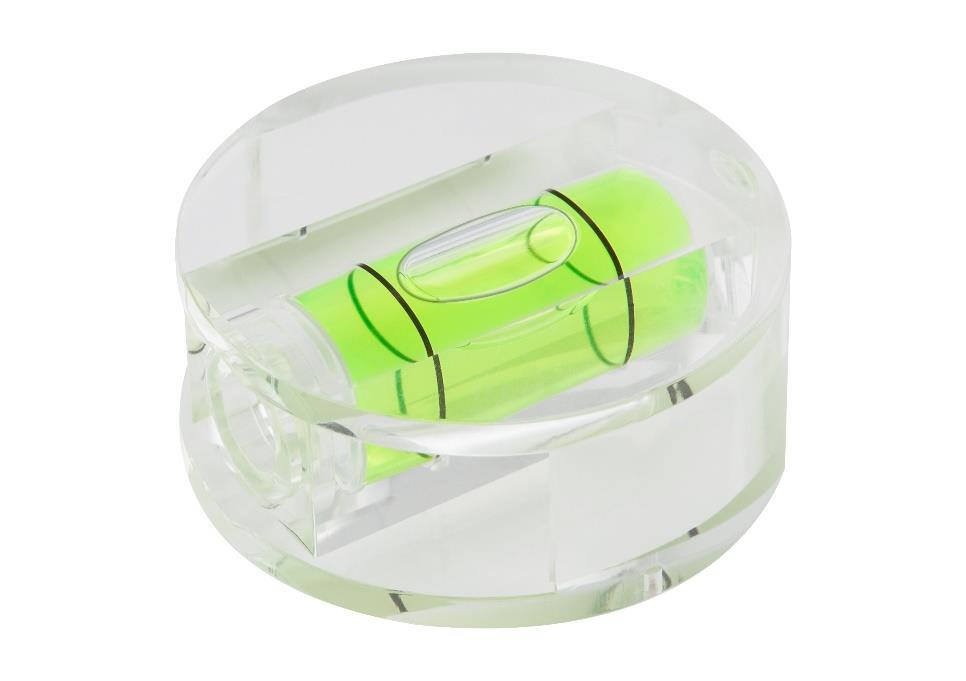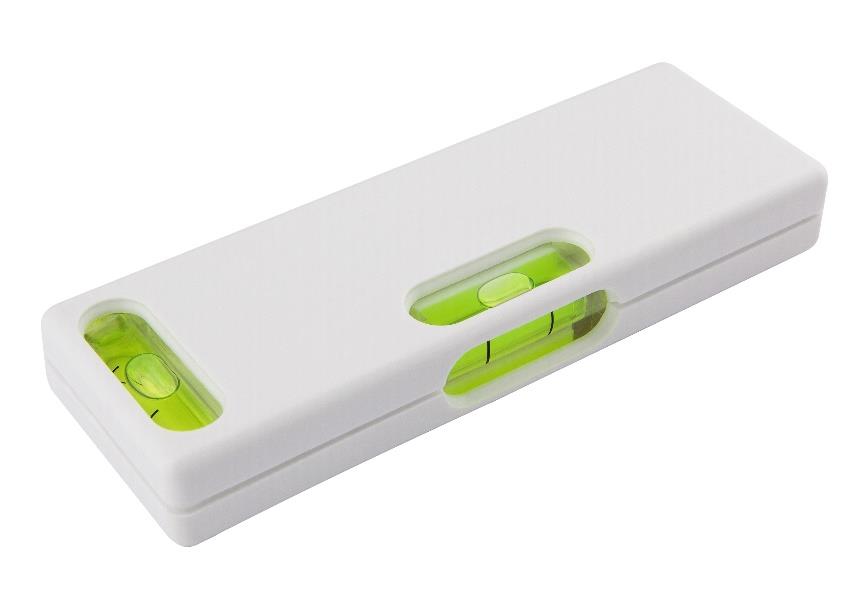
For centuries, spirit levels have been used to ensure components are lying flat. Even today, it is an essential tool for construction professionals and do-it-yourself fans alike. The measurement accuracy depends on the quality of the vial — a liquid-filled tube with an air bubble — the key component of every spirit level. One of the largest international manufacturers of vials is Walter Bürgermeister GmbH, headquartered near Linz in Austria. The company has a portfolio of approximately 200 different models for spirit levels and other measuring instruments and produces around 80,000 vials every day.
For more than 60 years, Bürgermeister vials have been made from ACRYLITE® molding compounds, the brand polymethyl methacrylate (PMMA) from Röhm in the Americas. Because the company values processes that save resources, Bürgermeister also uses ACRYLITE recyclate. “Our material contributes to sustainable product design. Not only is it extraordinarily durable, but it is also completely recyclable — and the quality remains almost unchanged,” said Heinz Schubkegel, senior business manager in the molding compounds business unit at Röhm.
Bürgermeister originally made glass vials. Walter Bürgermeister founded the company in 1947, inspired by his wife's grandfather who began producing glass measuring instruments in 1898. When plastics became more widespread at the end of the 1950s, the next logical step was to manufacture spirit levels with unbreakable plastic vials.
In 1960, Bürgermeister acquired his first injection molding machine. However, he was initially limited to covering the glass vials in a layer made of ACRYLITE molding compound, as sealing technology was not yet mature enough to make sealed plastic vials. This changed a few years later with a modified recipe for the vial liquid and an innovative welding process. Bürgermeister’s reliable and tight vials made from ACRYLITE molding compounds were unique in the market.
The small family-owned company has evolved into a cutting-edge enterprise. Renowned around the globe, the manufacturer still relies on the brand PMMA from Röhm. “We can look back on a long and trusted partnership with Röhm. In addition to the high-quality raw materials, we place great value on European production standards and the short transport distances,” said Ronald Adlbrecht, CEO at Walter Bürgermeister GmbH. “ACRYLITE is particularly well-suited for our vials as it highly transparent and has excellent optical qualities, is UV-resistant and is easy to process in injection molding processes and subsequent processing steps.”
As the liquid in the spirit level is not water, but a special spirit with a dye and various additives, the vial must be resistant to chemicals. It must not develop stress cracks, as the liquid could leak and the tool would become useless. This would also be the case if the material yellowed or became brittle through weathering. UV rays could also alter the measuring liquid, which is why UV resistance is a sign of quality in vials. Components made from ACRYLITE molding compounds are resistant to UV rays and chemicals, ensuring they are permanently transparent — in this case, guaranteeing reliably precise measurement results.

Bürgermeister places great emphasis on sustainability and conducts its business with saving resources and protecting the climate in mind. “We reuse material waste and leftover energy in the production process to the greatest possible extent,” emphasized CEO Adlbrecht. Solar panels on the roof of the new plant — constructed in 2018 — create green energy, while waste heat is used for the heating system. The company has reduced the energy required for injection molding by 25 percent. Around 90 percent of production waste, such as sprues or vial caps that are no longer required, are melted down, ground to granules and reused.
“This process is only possible with top-quality raw materials. Because ACRYLITE molding compounds from Röhm are characterized by their high optical purity, the regranulation process provides high-quality PMMA to produce new caps,” says Adlbrecht. Heinz Schubkegel says: “This is a model example of how ACRYLITE molding compounds can contribute to a circular economy.” Photo © Walter Bürgermeister GmbH.
www.roehm.com.